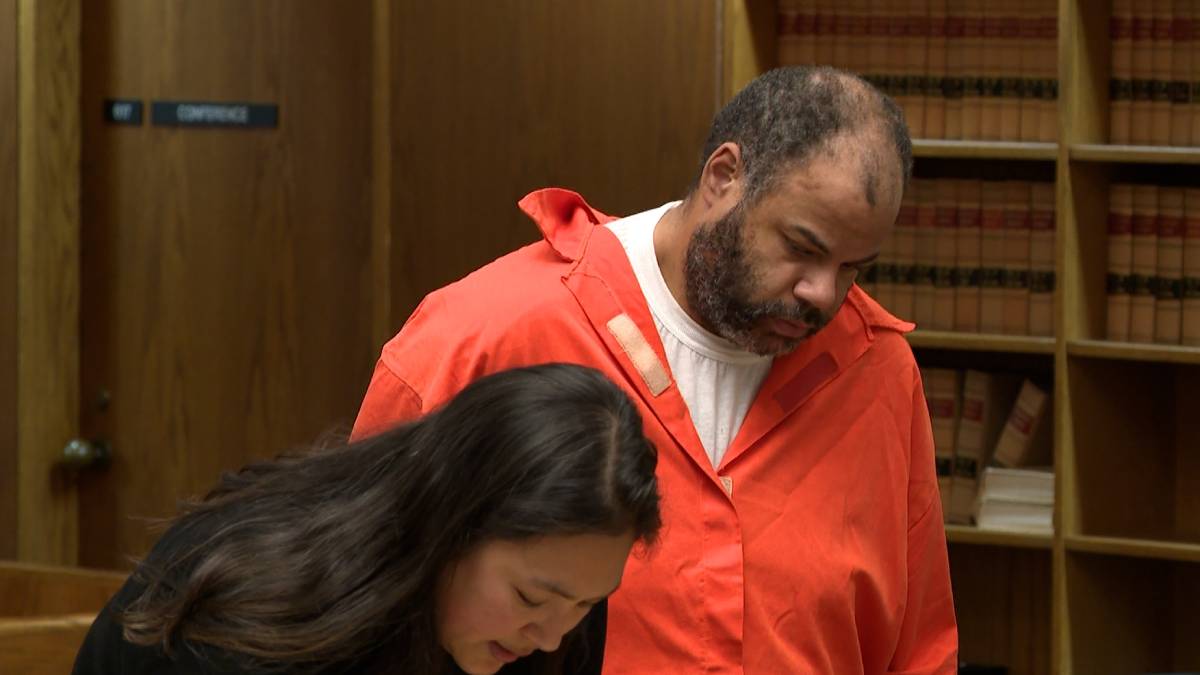Preliminary results indicate that a Yale University doctoral student who recently returned from Liberia and is exhibiting Ebola-like symptoms does not have the virus, sources say.
The student was admitted to Yale-New Haven Hospital in New Haven, Connecticut on Wednesday night and has been kept in isolation. He exhibited no symptoms when he returned from Liberia, offiicials said Thursday.
Two Yale students who had been conducting research in the West African country where Ebola is widespread returned to Connecticut on Saturday, Oct. 11 and have been kept in voluntary sequestration, said Laurence Grothier, director of communication for New Haven Mayor Toni Harp.
Last week, Gov. Dannel Malloy declared a public health emergency in the state as a precaution, which granted the commissioner of the state Department of Public Health the authority to quarantine and isolate people whom she "reasonably believes has been exposed to the Ebola virus."
Now, the governor has taken additional steps for the state to be prepared, including assembling a unified command team, led by the public health commissioner, and he has asked all hospitals to perform a drill within the next week to be sure that their procedures are up to standards.
Residents who become sick with a fever with and/or symptoms of Ebola virus who have traveled to Liberia, Sierra Leone, or Guinea in the last 21 days, or have had contact with a person who has Ebola will be sent to a hospital to be evaluated and placed in isolation, according to a news release from Malloy.
People who are not sick but have traveled to affected areas or been in contact with an infected individual will be required to stay home for 21 days and take their temperature twice a day. Public heath health workers will then call the patient twice a day to see how the person is doing and patients who develop a fever or other symptoms suggestive of Ebola will be sent to a hospital for evaluation and placed in room separate from other patients.
Connecticut
The latest news from across the state
United Way's 211 line is also providing information on Ebola and links on its website.
Officials emphasized Thursday that Ebola is a disease that is not easy to catch and can only be contracted by coming into direct contact with an infected individual who is exhibiting symptoms. The virus is not airborne.
Richard D'Aquila, president of Yale-New Haven Hospital, said during a news conference Thursday afternoon that the hospital has been preparing for the possibility of Ebola cases for weeks. He added that the admission of the possible Ebola patient went smoothly.
According to Dr. Thomas Balcezak, chief medical officer for Yale-New Haven Hospital, hospital staff were alerted Wednesday afternoon and evening after the student contacted a primary care physician in the community saying that he had come down with a fever,
After some preparatory work at the hospital, AMR ambulance transported the student to the emergency department, where he was evaluated and determined to be stable. He was then placed in isolation in a high-level precaution area under negative pressure, where air is exchanged and vented to an outside area.
The student remains in in-patient service and is in good condition, Balcezak said. Officials are not identifying the patient because of HIPAA privacy rules.
Yale President Peter Salvoney released a statement on Thursday, saying the decision to hospitalize the student was made out of an "abundance of caution," based on the recommendations of doctors, state health officials and the CDC.
"I understand that this situation may be worrying to some of you, to your families and friends, and to members of the Yale and New Haven communities. The health and safety of our interconnected communities is always our highest priority. The doctoral students who visited Liberia are knowledgeable about public health. They have reported that they were not in contact with Ebola patients or caregivers in Liberia, that they carefully followed recommended travel and hygiene precautions during their stay in the country and that they have continued to do so since their return. In addition, I know our colleagues at Yale-New Haven Hospital are well prepared to address this situation, however it develops, with compassion and skill," Salvoney said.
Hospital officials said Yale-New Haven is limiting the number of medical professionals caring for the patient, Balcezak said. At this time, that includes two attending physicians trained in critical care and internal medicine, as well as two nurses. Others will care for the patient as needed.
When asked about safeguards being taken, Balcezak said they are adhering to the "highest standards" for disposing of linens and cleaning equipment.
The other Yale student who was in Liberia is being monitored, Grothier said.
Salovey's online statement addressed questions about why students or anyone associated with Yale would travel to dangerous parts of the world.
"As an academic institution with a research and teaching mission and a long tradition of service, it is important for our clinicians and investigators to be able to go where they can put their training and expertise to the highest, best use," he said. "Some members of our community with special expertise may be called on to engage directly in order to advance knowledge and understanding, to treat the sick, or to tend to those who are displaced or suffering. If they do, I hope we will all offer gratitude and support, just as we do now for our hospitalized student."
Officials from the Connecticut Department of Health said they have been in communication with the hospital and the city to ensure that "all necessary protocols are in place to ensure the patient receives proper care and that hospital patients and the public are protected."
Hospital officials say they have been "actively monitoring the Ebola virus situation" and have procedures in place to detect and isolate any patient who shows symptoms on the disease.
"Yale-New Haven has advanced equipment and facilities and a staff well trained to treat any patient with Ebola, and holds regular drills to address situations such as infectious disease outbreaks," the hospital posted on its website.
On Wednesday, the chief medical officer of Hartford Healthcare, which operates a network of facilities, including Hartford Hospital, the Hospital of Central Connecticut, MidState Medical Center, Backus Hospital and Windham Hospital, said his staff has been preparing for a potential Ebola patient for months.
“We’re educating all of the physician practices of the 2,500 docs that are on our medical staff so that they know how to screen for Ebola, and so then they can refer those folks to a hospital, to an emergency room,” Dr. Rocco Orlando said.
There have been three confirmed cases of Ebola in the United States, according to the Centers for Disease Control and Prevention, and all three were in Dallas, Texas.
The most recent case is a Dallas nurse who tested positive for Ebola after caring for Thomas Eric Duncan, a patient who died of the disease at a Dallas hospital. She arrived on Wednesday evening at the Atlanta hospital where two other Americans have recovered from the virus.
Duncan, a 45-year-old welder from Liberia, was the first person to be diagnosed with Ebola on U.S. soil after traveling from Liberia to Dallas to visit family.
Another Dallas nurse who became infected with Ebola was upgraded to good condition Tuesday and remained good Wednesday, Texas Health Presbyterian Hospital in Dallas said.
Symptoms of Ebola, according to the CDC:
Fever (greater than 101.5°F)
Severe headache
Muscle pain
Weakness
Diarrhea
Vomiting
Abdominal (stomach) pain
Unexplained hemorrhage (bleeding or bruising)
Symptoms may appear anywhere from 2 to 21 days after exposure to Ebola, but the average is 8 to 10 days.
People who recover from Ebola infection develop antibodies that last for at least 10 years, according to the CDC.



